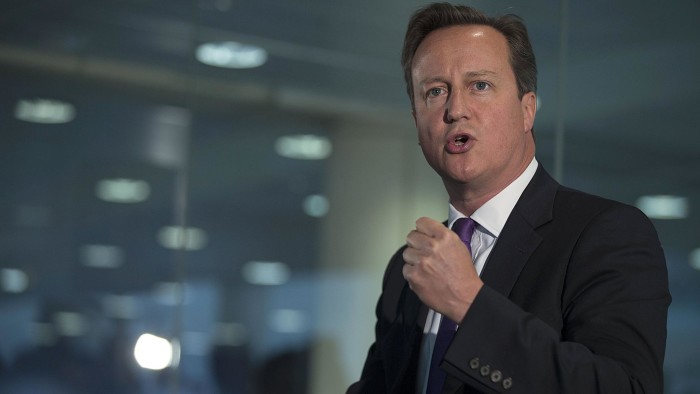What Aristotle might have said about the Scottish vote

Roula Khalaf, Editor of the FT, selects her favourite stories in this weekly newsletter.
What lessons can the business communicator learn from the campaigns around the referendum on Scottish independence? I think there are two.
First, it is worth looking at the debate through the lens of the Aristotelian triad I’m always banging on about: ethos (the identity connection with an audience), pathos (the swaying of emotion) and logos (the argument proper). The No campaign had been widely expected to carry the day without much trouble. But a fortnight before polling day – to the shock of the UK political establishment – a poll showed Yes in the lead and No struggling to regain momentum.
Although the vote remains on a knife-edge, the No campaign has proved a luminous example of how difficult it is to persuade if you fail to command ethos and pathos. Technocratic arguments about “sterlingisation” and the Schengen agreement will always struggle in the face of uplifting generalisations such as “hope”, “freedom” and “historic opportunity”. A last-minute attempt to inject feeling into the No campaign – David Cameron’s admission that he would be “heartbroken” by the end of the union – was high risk: for many Scots the prospect of Mr Cameron heartbroken would be a bonus incentive to vote Yes.
Ethos-wise, the nationalists had things pretty well stitched up. As identity speech, “we Scots voting on our destiny” is a simple, easy message. By contrast, “we Britons, which includes you Scots, voting on your destiny, which will affect ours” is a mess. Furthermore the Scottish National party could speak with one voice; whereas the three main Westminster parties look distinctly artificial when attempting to present a united front. It might be added that complacency plays badly with any audience because they feel taken for granted.
So, even if you are convinced your case is unanswerable, you need to win hearts as well as minds and you need to be seen to work earnestly to do so.
The other lesson the campaign offers is how much, rhetorically speaking, the dice are loaded in favour of positivity. It’s generally easier to get people to assent to an exciting “Yes!” than a timid “No”.
I’m indebted to a fine article by Carol Craig in the Scottish Review for the detail of quite how consciously the nationalists adopted positivity as a strategy. Following the 1997 election, the SNP started working with positive psychology coaches at the Really Effective Development Company . Influenced by the psychologist Martin Seligman, who in the late 1980s published findings on US elections suggesting that “the candidate who offered the greater message of hope won nine of the 10 elections studied”, the strategists worked to frame the SNP’s messages in unrelentingly positive terms. A message of boundless confidence in the wisdom and enterprise of the Scottish people is consciously contrasted with the doubts and warnings of the No campaign, which are represented as patronising scaremongering.
A former SNP chief whip recalled coaching sessions in which MSPs were given a bag of pennies: “Every time we said anything negative we had to put a penny in the middle of the table. This was to stop us saying negative things. It was a major change in approach.”
It is a trick any of us might profitably try in our offices and boardrooms. Of course – depending on how things go this week – Scottish readers may in future be playing the game with bags of cents or groats rather than pennies. Never mind. The principle is the same.
The writer is the author of ‘You Talkin’ to Me?’ Rhetoric from Aristotle to Obama
Comments